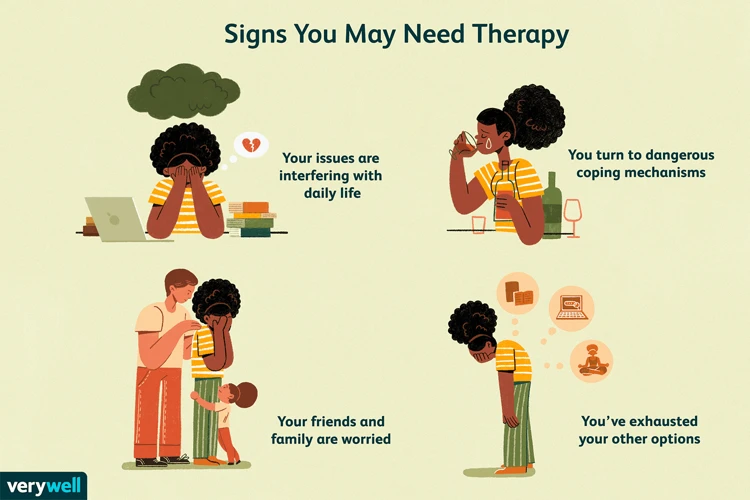Dreams have been intriguing people for thousands of years, with their mysterious and often symbolic meanings leaving many puzzled. While some people dismiss dreams as nothing more than random thoughts, others believe that dreams can offer valuable insights into one’s subconscious mind. In recent years, the field of dream interpretation therapy has gained popularity, offering people the opportunity to explore their dreams and gain a better understanding of themselves. If you’re considering working with a dream interpretation therapist but are unsure of what to expect, this guide will provide you with an overview of what dream interpretation therapy is, why it can be beneficial, and what to expect during your sessions.
What is Dream Interpretation Therapy?

If you’ve ever wondered about the meaning behind your dreams or why certain symbols keep appearing, dream interpretation therapy may be of interest to you. This type of therapy is not only fascinating, but it can also be incredibly helpful in uncovering unconscious thoughts and emotions that may be affecting your daily life. Let’s take a closer look at what dream interpretation therapy is and how it works.
Definition
Dream interpretation therapy is a type of therapy that aims to help you understand and explore the messages and symbols that your unconscious mind creates during your dreams. It is a process of interpreting the content and context of dreams, which can help to gain insight into your thoughts, emotions, and experiences.
| Key Components | Description |
| Dream Analysis | Dream analysis is the foundation of dream interpretation therapy. This technique involves analyzing the symbols, characters, and events in your dreams and interpreting them in the context of your life experiences. |
| Psychodynamic Approach | Psychodynamic approach is a key component of dream interpretation therapy. This approach focuses on the unconscious and seeks to help you understand and process unconscious thoughts and emotions that may be causing you distress. |
| Cognitive Behavioral Techniques | Dream interpretation therapy often incorporates cognitive-behavioral techniques to help you challenge negative thought patterns and replace them with positive ones. |
Dream interpretation therapy is a collaborative and interactive process that can help you gain clarity and insight into your innermost thoughts and emotions, leading to personal growth and healing.
How it works
Dream interpretation therapy works by exploring the symbols, people, and actions that appear in your dreams. Your therapist will help you interpret these elements and understand the underlying meanings behind them. Here are a few ways that dream interpretation therapy can work:
- Free association: You’ll be encouraged to say whatever comes to mind when you think of a certain symbol or action from your dream. Your therapist will help you explore the connections between these thoughts and your deeper feelings.
- Interpersonal therapy: You might explore the relationships between people who appear in your dreams to gain insights into how you relate to others in your waking life.
- Cognitive-behavioral techniques: Your therapist might use these techniques to help you change your negative thought patterns and beliefs that are interfering with your ability to work through issues in your dreams.
- Gestalt therapy: This approach to dream interpretation focuses on the feelings, sensations, and emotions that you experience during a dream. It can help you gain a greater awareness of your thoughts, behaviors, and feelings.
By analyzing your dream symbols, your therapist can help you gain a greater understanding of your subconscious thoughts and desires. This can provide insights into your current state of mind, your relationships with others, and any underlying issues that might be impacting your daily life. As a result, dream interpretation therapy can help you work through these issues and make positive changes in your waking life.
Why See a Dream Interpretation Therapist?

If you’re experiencing recurring nightmares, vivid and unsettling dreams, or other sleep-related issues, it may be time to consider seeking help from a professional. A Dream Interpretation Therapist can provide a unique and valuable form of therapy that delves into the symbolic meanings behind our dreams. But before you make the decision to reach out, it’s important to understand why seeing a Dream Interpretation Therapist might be necessary and what benefits it can offer. Let’s explore this further.
When to Consider Seeking Help
It can be difficult to know when to seek help from a dream interpretation therapist. Here are some signs that may indicate it’s time to consider seeking therapy:
- Recurring nightmares: If you experience frequent nightmares that leave you feeling scared or distressed, it may be a sign of underlying issues that could benefit from therapy.
- Intense emotions: If your dreams leave you feeling intense emotions such as fear, sadness, or anger, it may be helpful to explore these feelings with a therapist.
- Chronic insomnia: If you have trouble sleeping due to vivid or disturbing dreams, therapy may be able to help alleviate the symptoms and improve your sleep.
- Difficulty processing trauma: Dreams can sometimes be a way for our subconscious to process past traumas. If you are struggling to process a traumatic event, working with a dream interpretation therapist may be a helpful tool.
- Recurring themes: If you notice recurring themes in your dreams such as being chased, falling, or losing control, it could be a sign that there are underlying issues that need to be explored with a therapist.
- Feeling stuck: If you feel like you are stuck in your waking life or struggling with a difficult decision, exploring your dreams with a therapist can help provide clarity and insight.
It’s important to remember that seeking help from a dream interpretation therapist is a personal decision that should be made based on individual needs. If you are unsure if therapy is right for you, it may be helpful to speak with a mental health professional to discuss your options.
Benefits of Therapy
Dream interpretation therapy can offer many benefits to individuals seeking help with understanding their subconscious mind and the messages their dreams are conveying. Some of the key benefits of therapy include:
- Increased Self-Awareness: During therapy sessions, clients are encouraged to explore their thoughts and emotions, leading to a greater understanding of themselves and their subconscious mind.
- Better Emotional Regulation: Dream interpretation therapy can help individuals to identify and process emotions that they may have been suppressing or avoiding, leading to improved emotional regulation and coping skills.
- Improved Problem-Solving: Dreams can often present problems or issues that need to be addressed, and dream interpretation therapy can help individuals to identify and work through potential solutions and strategies.
- Increased Creativity: Dream interpretation therapy can help individuals to tap into their creative side and explore new solutions and perspectives.
- Greater Insight: By examining their dreams and the patterns within them, individuals can gain greater insight into their lives, relationships, and overall well-being.
- Reduced Stress and Anxiety: By understanding the messages from their dreams and working through any issues or problems that may be present, individuals may experience reduced stress and anxiety levels.
These benefits are just a few examples of what dream interpretation therapy can offer. The specific benefits of therapy can vary depending on the individual and their specific goals for treatment. It is important to discuss your individual needs and goals with your therapist to determine how dream interpretation therapy can help you.
What to Expect During Sessions

Undoubtedly, one of the most essential parts of working with a dream interpretation therapist is understanding what to expect during therapy sessions. From the initial consultation to subsequent visits, every appointment plays a pivotal role in identifying and working through subconscious issues that directly impact your daily life. During these confidential sessions, you will work one-on-one with your therapist to uncover the hidden meanings behind your dreams and use them to gain deeper insight into your thought processes and emotional well-being. In this section, we will explore what typically happens during dream interpretation therapy sessions, what techniques therapists may use, and how to gauge progression towards your goals.
First Session
During the first session with a dream interpretation therapist, it’s important to establish a comfortable and safe environment. The therapist will likely begin by asking you questions about yourself, including your background, current situation, and any specific concerns or issues you may be experiencing in your life. They may also ask about your sleep patterns and any recurring dreams you may have.
Goal setting: Once the therapist has an understanding of your situation, they will work with you to establish specific goals for therapy. These goals should be tailored to your individual needs and may include interpreting recurring dreams or improving your overall dream recall.
Interpretation of dreams: In order to interpret your dreams, the therapist may ask you to describe in detail a recent or recurring dream. They may ask questions to clarify certain aspects of the dream or to encourage you to explore your feelings and emotions surrounding the dream.
Discussion and exploration: Through discussion and exploration, the therapist will help you to connect the symbols and themes in your dreams to your real life experiences and emotions. They may also help you to identify recurring patterns in your dreams, and to explore the possible meanings behind those patterns.
Homework: After the first session, the therapist may ask you to keep a dream journal or to continue to focus on specific dream-related goals. This homework will help to reinforce what you learned during the session and to encourage you to continue exploring your dreams outside of therapy.
Confidentiality: It’s important to note that dream interpretation therapy, like all forms of therapy, is confidential. You should feel comfortable sharing your thoughts and feelings with your therapist, and they should never share your information with anyone without your consent.
Subsequent Sessions
In subsequent sessions, clients can expect to dive deeper into their dreams with the help of their therapist. These sessions are typically more focused and tailored to the individual’s needs, and may involve a range of techniques and exercises.
During subsequent sessions, the therapist will continue to guide the client through the interpretation process, helping them to explore the different aspects of their dreams and uncover any underlying emotions or unresolved issues that may be coming up. This may involve asking the client to recall specific details or symbols from their dreams, or to explore the emotions that were present during the dream.
To help clients gain a deeper understanding of their dreams, therapists may use a variety of techniques, including:
| Technique | Description |
| Amplification | This involves exploring the various meanings and associations attached to specific symbols or images in a dream. |
| Active Imagination | This technique involves encouraging the client to actively engage with the symbols or characters in their dreams, allowing for a deeper exploration of the unconscious mind. |
| Gestalt Therapy | This approach encourages clients to explore the different parts of their dreams as if they were parts of themselves, and to examine the interactions between these different parts. |
| Jungian Analysis | This involves exploring the archetypal themes and symbols that may be present in a client’s dreams, as well as their personal associations with these symbols. |
Together with their therapist, clients will work to gain a deeper understanding of the patterns and themes that are emerging in their dreams, and to connect these to their waking life experiences. As clients gain a greater awareness of their unconscious mind and the role that their dreams play in their psychological well-being, they may begin to feel a greater sense of clarity and purpose in their waking life.
Techniques Used
During dream interpretation therapy sessions, therapists use a variety of techniques to help clients explore and make sense of the symbols and themes in their dreams. Here are some of the most common techniques used by dream interpretation therapists:
- Free Association: This technique involves allowing the client to speak freely about the different elements within their dream without trying to censor or filter their thoughts. By doing so, they may uncover thoughts and emotions that they may not have been aware of before.
- Active Imagination: This technique involves the therapist guiding the client through a visualization exercise based on elements from their dream. By doing so, the client gains a deeper understanding of the symbols or themes in their dream.
- Reframing: This technique involves the therapist helping the client to reframe their dreams in a more positive or constructive light. By viewing their dreams through a different lens, clients can often gain new insights into their emotional struggles.
- Dream Journaling: This technique involves having the client keep a dream journal and bring it to each therapy session. By analyzing different patterns or recurring themes in their dreams, the therapist can help the client understand what their subconscious mind is trying to communicate.
- Interpretation: This technique involves the therapist providing their professional interpretation of the client’s dreams. While therapists may provide guidance, it is ultimately up to the client to decide on the personal meaning of their dream.
Dream interpretation therapy can provide a safe and supportive space for clients to explore their inner selves and gain a deeper understanding of their emotional struggles. Each therapist may use different techniques depending on their training and philosophy, so it’s important for clients to find the right fit for them.
How to Find a Dream Interpretation Therapist
As you consider seeking help from a dream interpretation therapist, you may be wondering how to find the right one for you. The process can feel daunting, but with some guidance, it can be manageable. Searching for a therapist is a crucial step that requires careful consideration of your needs, goals, and preferences. In this section, we will explore some key steps to take as you begin your search for a dream interpretation therapist, including where to start, questions to ask, and red flags to watch out for.
Where to Start
If you’re interested in seeking the help of a dream interpretation therapist, where to start can seem like a daunting question. Here are a few options to consider:
| Option | Description |
|---|---|
| Ask for referrals | If you have friends or family members who have seen a dream interpretation therapist, ask if they have any recommendations. They may be able to point you in the direction of a therapist who can help. |
| Look online | Search for “dream interpretation therapist” in your local area on search engines or therapy directories such as Psychology Today or GoodTherapy. These directories often let you filter results based on location, insurance, and special areas of focus. |
| Contact a professional organization | Organizations such as the International Association for the Study of Dreams (IASD) or the American Counseling Association (ACA) can provide you with directories of qualified therapists in your area who specialize in dream interpretation therapy. |
| Check with your insurance | If you have health insurance, check your provider’s directory to see if they cover mental health services. Then, call to see if they have any dream interpretation therapists in-network. |
By exploring these options, you can begin to gather a list of potential therapists to work with. From there, you can start thinking about the next steps in finding the right therapist for you.
Questions to Ask
When looking for a dream interpretation therapist, it’s important to ask the right questions to ensure that you find someone who is a good fit for you and can provide the care that you need. Here are some questions that you may want to ask:
| Question | Why it’s important to ask |
| What is your experience with dream interpretation therapy? | Asking about a therapist’s experience can give you an idea of how familiar they are with working with dreams and how long they’ve been practicing. You want to find a therapist who has experience with the therapy you’re seeking. |
| Do you have any particular areas of expertise within dream interpretation therapy? | If you have a specific issue that you want to work on, such as recurring nightmares or anxiety dreams, you may want to seek out a therapist who has expertise in those areas. |
| What is your approach to dream interpretation therapy? | Every therapist may have a slightly different approach to dream interpretation therapy, so it’s important to find one whose approach resonates with you. Some therapists may focus more on the symbols in your dreams, while others may focus on the emotions they evoke. |
| How long do you typically work with a client? | You may want to know how long a therapist typically works with clients to get an idea of what to expect. It’s also important to know when you can reasonably expect to see results. |
| What are your fees, and do you accept insurance? | Knowing the cost of therapy is important for financial planning. Finding out whether a therapist accepts insurance can help you determine whether their services are affordable for you. |
| How often will we meet, and for how long? | You may want to know how often you’ll be seeing your therapist and how long each session will last so that you can plan your schedule accordingly. |
| How will you ensure my privacy? | It’s important to know that your therapist will keep your sessions confidential. Asking this question can give you peace of mind that your privacy will be protected. |
Asking these questions can help you find a dream interpretation therapist who is a good fit for you and your needs. Be sure to take the time to find a therapist who makes you feel comfortable and who you feel can provide the care that you need.
Red Flags to Watch For
When searching for a dream interpretation therapist, it’s important to be aware of any red flags that may indicate that the therapist is not the right fit for you. Here are some warning signs to watch for:
- Lack of qualifications: Make sure that the therapist you choose has the proper credentials and is licensed to practice therapy. Don’t hesitate to ask about their education and experience, and verify their qualifications with professional organizations.
- No clear treatment plan: A good therapist will work with you to create a clear treatment plan and set goals for therapy. If the therapist cannot provide you with a plan or if they seem unfocused during sessions, this could be a sign that they are not a good fit.
- Unprofessional conduct: If the therapist engages in behavior that makes you uncomfortable or is unprofessional, this is a major red flag that you should not ignore. This could include anything from inappropriate comments to violating professional boundaries.
- Ignoring your concerns: A good therapist should listen to your concerns, take them seriously, and work with you to address them. If you feel like your concerns are being ignored or dismissed, this could be a sign that the therapist is not a good fit for you.
- Overpromising results: While therapy can be incredibly helpful, it’s important to manage your expectations. If the therapist promises quick and easy results or guarantees a specific outcome, this is a red flag. Therapy is a process, and progress can take time.
Remember, finding a therapist that is a good fit for you is crucial to the success of therapy. If you notice any red flags during your search, don’t hesitate to move on and find a therapist who meets your needs.
Conclusion
In conclusion, working with a dream interpretation therapist can be a valuable and insightful experience for those seeking a deeper understanding of their subconscious mind. Through the exploration of dream symbols and personal associations, individuals may uncover important insights and identify patterns that lead to personal growth and healing.
While there are many techniques used in dream interpretation therapy, it is important to remember that the process is not a cure-all for mental health issues. It is crucial to also seek appropriate treatment from a licensed mental health professional if experiencing symptoms of depression, anxiety, or trauma.
Finding a dream interpretation therapist can be done through online research, referrals from friends or family, or contacting mental health organizations in your area. It is important to ask questions and ensure the therapist has proper credentials before beginning treatment.
Overall, dream interpretation therapy can be a powerful tool for self-discovery and healing, but it is important to approach it with an open mind and a willingness to explore personal thoughts and emotions.
Frequently Asked Questions
How long does a dream interpretation therapy session typically last?
The length of a dream interpretation therapy session can vary, but it usually lasts between 45 minutes to an hour.
Can dream interpretation therapy be done online?
Yes, some dream interpretation therapists offer online sessions via video chat for those who are unable to meet in person.
Do I need to bring a dream to every session?
No, it’s not necessary to bring a dream to every session. However, dreams can be a helpful tool for therapy and the therapist may ask about any recent dreams you’ve had.
Can dreams hold different meanings for different people?
Yes, dreams can have personal meanings for each person based on their own experiences, emotions, and subconscious thoughts.
Is it possible for dreams to predict the future?
While some people believe that dreams can predict the future, there is no scientific evidence to support this claim.
Can dream interpretation therapy treat specific mental health conditions?
Dream interpretation therapy is not designed to treat specific mental health conditions, but it can be used as a complementary therapy to other forms of treatment.
How do I know if a dream interpretation therapist is qualified?
It’s important to research the therapist’s credentials and experience. Look for someone who is licensed and has specific training in dream interpretation therapy.
What are some common techniques used in dream interpretation therapy?
Some common techniques include free association, projection, and identifying recurring themes in dreams.
Can I interpret my own dreams without a therapist?
While it’s possible to interpret your own dreams, a therapist can provide guidance and insight that you may not be able to discover on your own.
Is dream interpretation therapy covered by insurance?
It depends on your insurance provider and plan. It’s best to check with your provider to see if dream interpretation therapy is covered.








